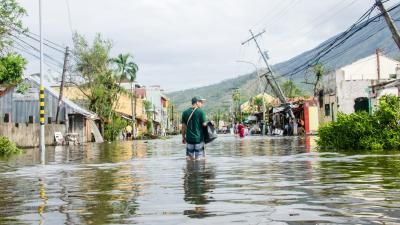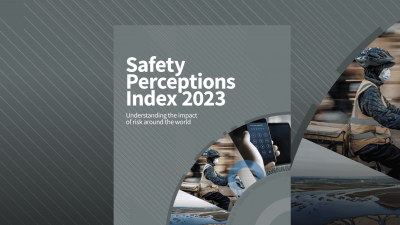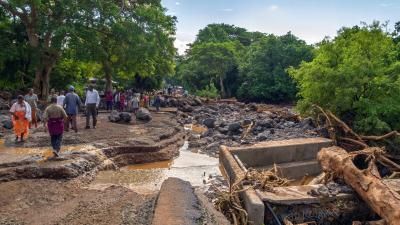- There was a 5-percentage point increase in the number of people saying they felt less safe in 2021.
- There has been a global rise in ‘ambiguous risk,’ the feeling that people are at risk but are unsure from what.
- Both worry and the experience of harm in relation to food and water improved, however low-income and conflict-ridden countries have recorded substantial deteriorations.
- In 2021, more people reported experiencing harm from severe weather than in 2019, but levels of worry decreased.
- Anxieties associated with employment and economic conditions rose between 2019 and 2021, likely caused by the economic downturn.
- The country most impacted in the SPI was Mali, which has experienced two recent coups and has been racked by multiple violent conflicts.
- Counterintuitively, the overall SPI score improved following the onset of Covid-19, likely due in part to Covid related lockdowns and the restriction on movement globally.
The second Safety Perceptions Index report, released today, provides a comprehensive measure of global perceptions of safety. The report is based on two iterations of the Lloyd’s Register Foundation World Risk Poll, the first conducted in 2019 and the second in 2021, and provides commentary, trends, and insights into these two sets of data.
In 2021, the SPI improved globally across two domains – food and water and violent crime – and deteriorated in two – severe weather and mental health. Uzbekistan recorded the best overall score, while Mali recorded the worst overall score. Mali is currently suffering from a violent internal conflict, has high rates of terrorism, and saw its government overthrown in successful coups in both 2020 and 2021.
Sub-Saharan African countries are the most risk-impacted in the world. Many countries in the region are among those with the highest worry rates globally and are represented in the top five most impacted countries for food and water, mental health, and workplace safety.
The only domain in which the average levels of both worry and experience of harm increased from 2019 to 2021 was the mental health domain, likely due in part to the proliferation of COVID-19 lockdowns and other disruptions to regular social life. The World Health Organisation estimates that COVID-19 led to a 25% increase in rates of anxiety and depression, with women and young people hit the hardest.
"The Safety Perceptions Index 2023 report digs deeper into the World Risk Poll data to provide us with valuable insights into how perceptions of safety differ across countries, and how the various aspects of risk are connected," said Sarah Cumbers, Director of Evidence & Insight at Lloyd’s Register Foundation. "The report will be useful in the decades ahead as it will provide insight into the shifts in perception that might be associated with any future pandemics or other global shocks, and how to manage those changes."
Safety perceptions – the shifting risk landscape
Over half of countries surveyed recorded substantial deteriorations in feelings of safety compared to five years earlier. In Myanmar, 11% of the population reported feeling less safe in 2019, rising to 59% in 2021. In Vietnam, 37% of the population also reported feeling less safe, an increase of 26 percentage points from 2019.
However, many countries improved. in Sweden, the percentage of the population feeling more safe rose from 12% in 2019 to 32% in 2021. Zambia recorded a notable increase, rising from 19% to 37%.
Rise in ‘ambiguous risk’
The 2023 SPI report finds a rise in ‘ambiguous risk’. This refers to people’s feeling that they are at risk but are unsure from what. The rise in ambiguous risk can be seen in the responses to the World Risk Poll question on the greatest perceived threat in people’s daily lives. Between 2019 and 2021, the largest changes in response rates were for those saying that no risk existed in their lives, which fell by half, and those saying they did not know what their greatest risk was, which nearly doubled.
COVID-19 and risk
The 2023 SPI highlights the changing dynamics of risk that accompanied the onset of the COVID-19 pandemic. The world is less certain about its future than at any time since the Cold War. The pandemic continues to impact every corner of the globe, inflation is rising, Russia’s war in Ukraine has disrupted international relations, and economic growth has slowed and, in some cases, reversed. As COVID19 only ranked as the fourth most cited threat to people’s daily safety, these findings suggest that it was the societal experience of the pandemic – more than the virus itself – that most impacted worries and experiences of risk.
Regional & country findings
Uzbekistan was the highest scoring country overall and, on average, the Russia, Eastern Europe and Central Asia region had the best scores globally. This is a noteworthy result, given that countries in the region do not typically rank highly in other measures of security and development.
- The worst scoring country in the 2023 SPI was Mali, which has experienced two recent coups and has been racked by multiple violent conflicts.
- On average, sub-Saharan Africa was the worst scoring region in the SPI; all five countries with the worst scores are in the region, with four of them currently suffering from violent conflict.
For more information, visit visionofhumanity.org and wrp.lrfoundation.org.uk




